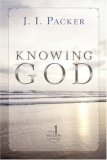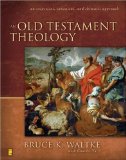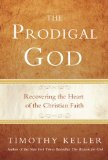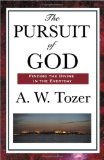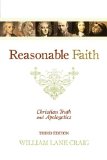Thanks to Chris at Zondervan for a review copy of this book.
In this portion of the review, I’ve opted to focus specifically on Waltke’s treatment of the Abrahamic & Davidic covenants. I did this for two main reasons: 1) since Waltke’s book is, in part, a biblical theology, I wanted to know how he develops these two covenants and 2) I tell my students every year (ad nauseum, actually) that these two covenants are foundational for understanding the rest of the Bible (more on that as we go along).
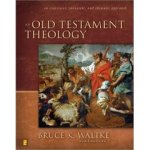 In chapter 12, The Gift of the Abrahamic Covenant, Waltke shows us how the story of Abraham and his sons (the patriarchs) connects with Genesis 1-11. “The story of the Fall [Genesis 1-11] poses the challenge; the patriarchal narratives… are God’s definitive response” (p307). Much of his treatment of Abraham and his sons is terrific. For instance, he specializes in the structure of the patriarchal narratives (lovers of chiasms will love this chapter) and offers helpful insights into Abraham’s faith (which is not unwavering, but still commendable).
In chapter 12, The Gift of the Abrahamic Covenant, Waltke shows us how the story of Abraham and his sons (the patriarchs) connects with Genesis 1-11. “The story of the Fall [Genesis 1-11] poses the challenge; the patriarchal narratives… are God’s definitive response” (p307). Much of his treatment of Abraham and his sons is terrific. For instance, he specializes in the structure of the patriarchal narratives (lovers of chiasms will love this chapter) and offers helpful insights into Abraham’s faith (which is not unwavering, but still commendable).
Unfortunately, he doesn’t show how the Abrahamic covenant is so crucial to the rest of the Bible, specifically in the prophets. How many times do we read about “the God of Abraham, Isaac and Jacob”? How many times do we read prophecies (especially in Isaiah) about the nations being drawn to Israel? These are bringing us back to the stories of Abraham. Waltke offers an extended treatment of Romans 9-11, dealing with the relationship of Israel to the church. I imagine this is in part due to his turn from dispensationalism to covenant theology (one I happen to laud), so he may have felt the need to include this discussion. But, in the meantime, I felt like an opportunity to do some strong biblical theology was missed.
Waltke deals with the Davidic covenant (see 2 Samuel 7) in its own chapter (chapter 23). But unlike his treatment of the development of the Abrahamic covenant, Waltke does in fact develop the idea of kingship in chapter 24, The Gift of Kingship. He leads off by taking on the notion that kingship is actually seen in a negative light in the Old Testament. For instance, Waltke also argues, persuasively, that Gideon is hardly a credible person in the narrative, so his complete objection to kingship (Judges 8:22-23) can hardly be seen as the narrator’s point of view (p684).
I highly commend Waltke’s survey of the views of the kingship in the Pentateuch, but I want to move on to how he sees the development of kingship, specifically Davidic, in the rest of the Bible. He even includes a helpful section on the relationship between the Abrahamic and Davidic covenants, noting that “the Davidic covenant fulfills, confirms, and supplements the Abrahamic covenant” (p692). I’m not sure I totally agree with his use of “fulfill,” since while David’s dynasty does fulfill part of it, we still don’t see the nations of the earth being blessed in David or his sons (until, of course, Jesus).
Regarding how the Davidic covenant supplements the Abrahamic covenant, Waltke states, “I AM promises unconditionally to both Abraham and David an eternal posterity: to Abraham an enduring nation; to David an enduring dynasty to rule that nation. Indeed, David’s eternal dynasty mediates the kings who I AM promised to give from Abraham and Sarah’s own bodies” (p693).
Beginning on p699, Waltke includes a brief survey of how the prophets, psalms and New Testament develop the theme of Davidic kingship. When I say “brief,” I really mean it- only 2 ½ pages. I would have liked more, but I’m thankful for what he included, specifically with the prophets. He quotes Is 9:6-7, 11:2; Jer 23:5-6; and Mic 5:2-5 to point out to the reader how these recall God’s promise to David in 2 Samuel 7. Again, while it would have been nice for him to develop this more (and maybe talk about passages like Ezekiel 37:24-28), he gives enough to help the reader make a connection that many of us do not make at all. But, if we’re paying attention to what Waltke’s point is (that the prophets bring us back to God’s covenant with David) and paying attention when we’re reading the prophets, we’ll begin to see these connections for ourselves.
His treatment of the Davidic covenant in the Psalms and New Testament, however, are a bit more disappointing. He gives one paragraph to the Psalms; the same goes for “Jesus Christ and the Davidic Covenant.” And in his discussion of Jesus’ genealogy in Matthew 1, he actually gives his opinion on why it differs from Luke’s genealogy. Matthew sets him up for a chance to make a great point for his readers, and he misses it. Matthew starts with, “This is the genealogy of Jesus the Messiah, the son of David, the son of Abraham.” What more could an Old Testament scholar ask for! I was waiting for Waltke to knock this out of the park, but in the end, he opted to bunt instead.
I started this review noting that I wanted to see how Waltke developed these two great covenants. As you can tell, I came away somewhat disappointed. What he does say is great, and there’s much to learn from it, but I can’t help but think more could have been said (yes, in a book weighing in at 1000+ pages).
I’ve thought about whether it’s fair for me to judge Waltke on his discussion of topics that I’m interested in. But I don’t think it’s simply about my interest level. The Abrahamic and Davidic covenants are recalled time and time again throughout the Bible. Every time we read about “the God of Abraham, Isaac and Jacob” and the nations being drawn in to God’s people, the biblical authors are reminding us of God’s promise to Abraham. Every time we read in the prophets about the coming king in the line of David, or the psalmists’ prayers for blessings on the king, or the fact that Jesus was born in Bethlehem, the city of David, the biblical authors are reminding us of God’s promise to David. So, no, I don’t think I’m simply importing my own wishes on Waltke. Back on p125-126, Waltke states, “Later texts by charismatic figures- be they prophets (such as Isaiah, Jeremiah, Ezekiel), prophets historians (e.g., the Deuteronomist and Chronicler), or an authorized exegete (such as Ezra)- occasionally transform the teaching of earlier texts of charismatic figures (such as Moses).” This was a chance for Waltke to demonstrate that point; I wish he would have taken that opportunity.
Read Full Post »
 Old Testament Theology: A Thematic Approach
Old Testament Theology: A Thematic Approach using the subtitle of the book: An Exegetical, Canonical, and Thematic Approach. It’s generally a good habit to critique a book based on the goals of the author rather than what the reader thinks they should have said.
using the subtitle of the book: An Exegetical, Canonical, and Thematic Approach. It’s generally a good habit to critique a book based on the goals of the author rather than what the reader thinks they should have said. you add in things like the sacrificial system and the Law of Moses, which are no longer binding in the new covenant, some Christians wonder why it’s worth the time to figure all this out.
you add in things like the sacrificial system and the Law of Moses, which are no longer binding in the new covenant, some Christians wonder why it’s worth the time to figure all this out. It has admittedly, and regretfully, been a while since I’ve posted more of my review of this book. I won’t make excuses, but I’ll reiterate that
It has admittedly, and regretfully, been a while since I’ve posted more of my review of this book. I won’t make excuses, but I’ll reiterate that  I mentioned at
I mentioned at 






